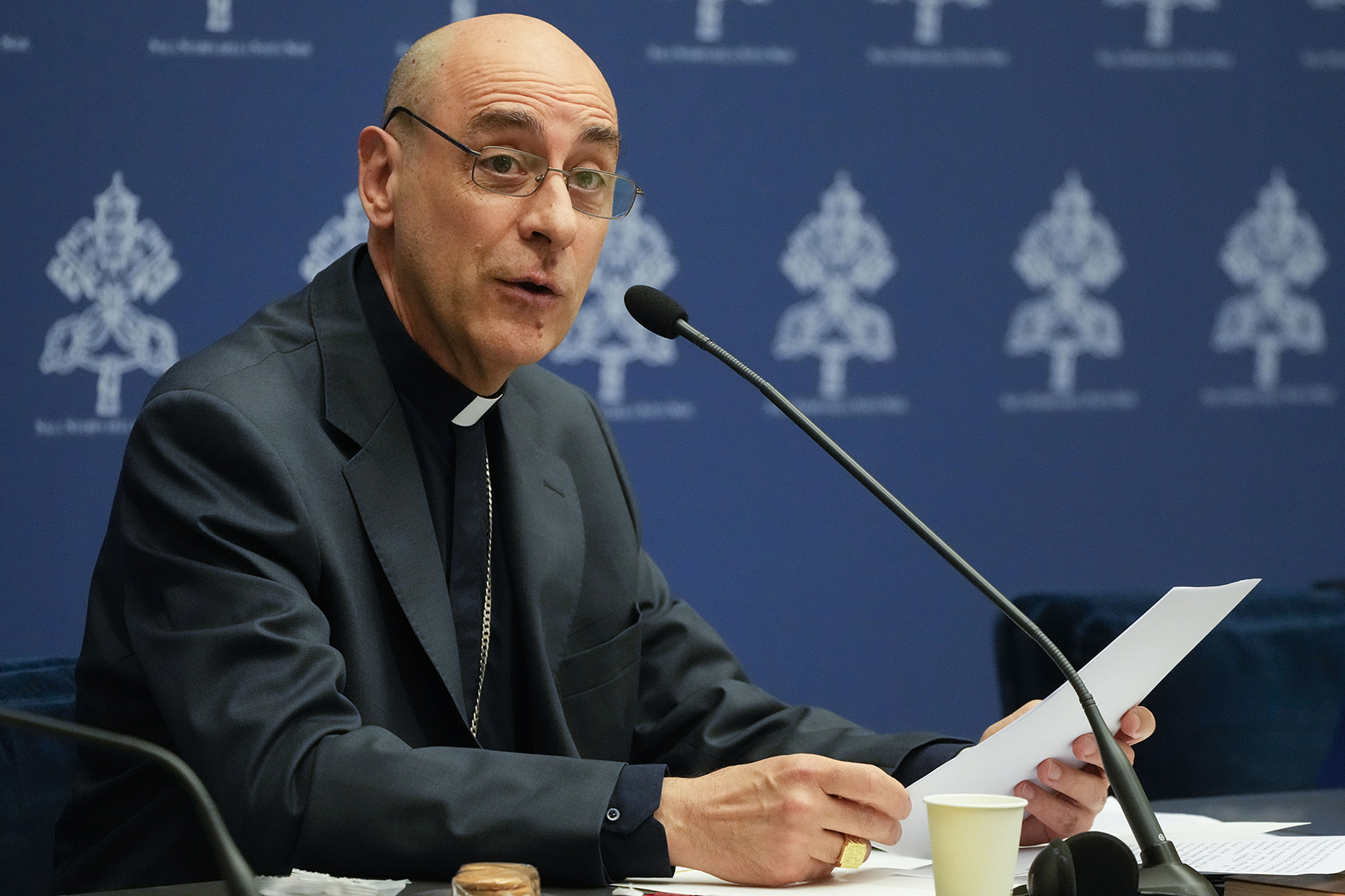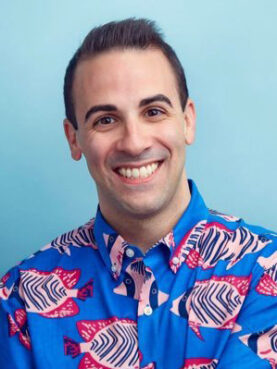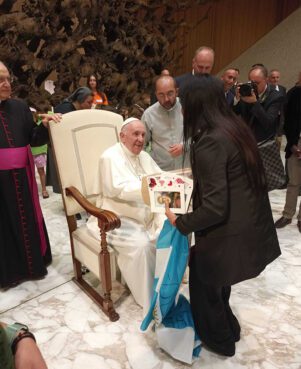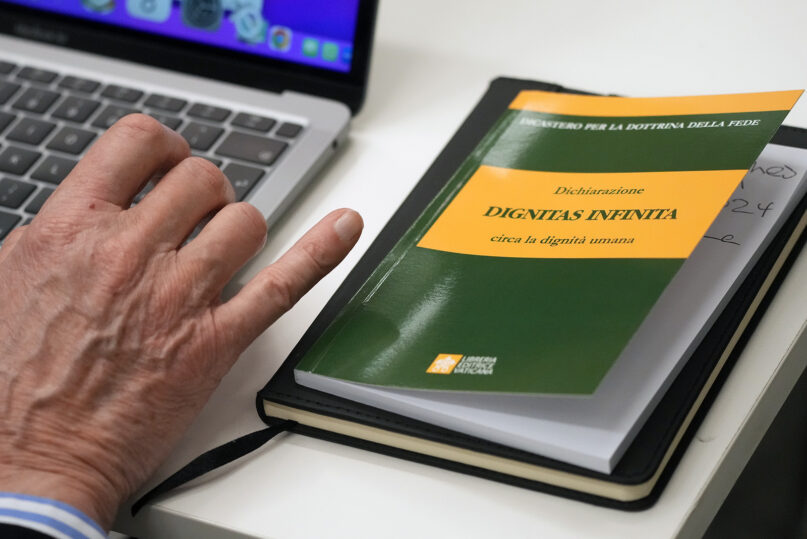VATICAN CITY (RNS) — For Catholics hoping for change in their church’s teaching on gender, sexuality and reproductive issues, a new Vatican document on human dignity issued last week was more than a disappointment. It left many questioning whether Pope Francis has ever intended his famed personal gestures of welcome toward LGBTQ believers to translate into doctrinal changes.
Cardinal Victor Manuel Fernandez, who oversaw the new document’s creation, seemed to seek to reassure conservatives when he said at a press conference on April 8, “Pope Francis won’t ever speak ex cathedra. He won’t want to create a new dogma of the faith — not for anything — nor a definitive declaration.”
He added rhetorically, “So will it have served nothing, that Pope Francis should have been for 11 years the Supreme Pontiff?”
That’s just what many progressives want an answer to. Has Francis’ pastoral acceptance of transgender and gay Catholics been merely an attempt to quiet progressives while remaining committed to the status quo?
The topics addressed in the declaration, titled “Infinite Dignity,” are of particular concern to LGBTQ Catholics, who have seen Francis as an ally since his question “Who am I to judge?” in response to questions about his views on homosexuality. The pope has also raised the community’s expectations by pushing for blessings for people in same-sex relationships and meeting with transgender activists and advocates for gay Catholics.
But when the document was released by the Vatican’s doctrinal office April 8, it identified gender theory, surrogate pregnancy and transgender surgery, all matters of concern to LGBTQ Catholics as threats to human dignity. It condemned the practice of surrogacy — when a woman carries a child for another person — as harmful to children and said “sex-change operations” and gender theory amount “to a concession to the age-old temptation to make oneself God.”

The prefect of the Vatican’s Dicastery for the Doctrine of the Faith, Cardinal Victor Manuel Fernandez, presents the declaration “Dignitas Infinita” (Infinite Dignity) during a news conference at the Vatican, April 8, 2024. (AP Photo/Gregorio Borgia)
While the document also contained a long reflection on the dignity of all human beings regardless of circumstances, origins or actions, it struck LGBTQ and women’s advocates as a step back from the previous pronouncements not only by Francis, but from the Dicastery for the Doctrine of the Faith and Fernandez, who was appointed to lead it in July.
Under Fernandez, the doctrine office affirmed that trans individuals may be baptized and act as godparents, as long as doing so doesn’t cause “scandal,” defined in the church’s catechism as “an attitude or behavior which leads another to do evil.”
More notably, it approved the blessing of people in same-sex relationships and others in “irregular situations” only two years after ruling out such blessings because “God cannot bless sin.”
Some hopeful Catholics believed these decisions pointed to a new opening for LGBTQ believers that would reflect Francis’ welcoming attitude.
But with its emphasis on the church’s doctrinal tradition and its list of prohibitions, the new document was considered a “failure” by many Catholic LGBTQ advocacy groups.

Brandon Ambrosino. (Photo via Villanova)
“As with all documents, this one invites us to engage with it and to question it, particularly when it begins to wade into contemporary debates that it doesn’t seem prepared for,” said Brandon Ambrosino, a theologian and ethicist at Villanova University who pursued parenthood with his husband through a surrogate.
Ambrosino questioned the document’s lack of a consultation with a wider selection of experts and theologians, as well as women who serve as surrogates for family members who are unable to conceive or carry a child. “I encourage the pope to do what he does best: to listen to these women’s stories with an open heart, and to allow their testimonies to meaningfully impact his position,” he said.
For those who watch the pope’s words closely, however, “Infinite Dignity” was no surprise. Speaking to ambassadors to the Vatican earlier this year, Francis condemned gender theory as a form of “ideological colonization,” and he has supported a global ban on surrogacy, which he said victimizes women in poor countries especially.
On April 5, the pope met with some of the signatories of the Casablanca Declaration, signed in March 2023 by an international group of doctors, lawyers, philosophers and others who oppose surrogacy, urging legal bans on the practice. One signer, Katy Faust, founder of “Them Before US,” a children’s rights nonprofit that supports families and children, said she was “grateful” for the Vatican document.

The Rev. Andrea Conocchia, center, introduces members of the Torvaianica transgender community to Pope Francis on Aug. 11, 2022, during the pope’s general audience at the Vatican. (Photo courtesy of Andrea Conocchia)
Faust said she hopes Protestant denominations will “embrace the same level of clarity” the Vatican has reached in “Infinite Dignity,” putting surrogacy in the same category as abortion, sexual abuse and human trafficking.
Faust said she was confused, however, by the dicastery’s ambivalence on questions concerning the LGBTQ community. “It’s very hard for me to understand how a pontificate can bless same-sex unions, which will always deny children a relationship with their mother or father, and then understand that surrogacy is the commodification of women and children,” she said. “It’s hard for me to reconcile those inconsistencies,” she added.
At the height of the COVID-19 pandemic, Francis invited a group of trans women, most of them sex workers, to the Vatican for medical check-ups and to be vaccinated against COVID-19. He has been reported to have told a trans Catholic that “God loves us as we are.”
The gap between the pope’s attitude and official church doctrine puzzles many, and some speculate that Francis, who turns 88 this year, is merely kicking controversies down the road for his successors to decide.
These observers also point to the Synod on Synodality, a worldwide meeting of bishops, nuns and lay Catholics to deal with issues concerning Catholics around the globe, whose agenda was suddenly changed in March, delaying “doctrinal, ethical and pastoral issues that are controversial,” including women’s ordination as deacons, to at least 2025.
Fernandez’s question about Francis’ lasting imprint on the church may have reflected his own sense that change may follow Francis’ pontificate. The cardinal went on to discuss the evolution of church doctrine, saying the church has changed its perspective on slavery and the death penalty over time as well.
“The church hasn’t always really effectively recognized the dignity of all people,” said Sandie Cornish, a senior lecturer at the Australian Catholic University’s School of Theology. “This is an area where we continue to grow in understanding,” she added.
While the question of whether doctrine can change is “hotly debated by theologians,” said Cornish, “it’s clear in the field of Catholic social teaching by looking at the documents and proclamations through time that there is development through teaching.”
The contradictions between the church’s official doctrine and the pope’s example might be a sign that change is bubbling beneath the surface, according to Cornish.
With its broad interpretation of human dignity, the Vatican document might pave the way for a new evolution of doctrine, Cornish suggested. Francis’ insistence on synodality and on discerning what the Holy Spirit is trying to teach the church might be an important step in this direction, she added.
“Often right before there is actual change in the teaching of the church you find ambiguous pronouncements,” she said, pointing to the church’s changing views on migration and female employment. “It’s a sign that something is about to change, that we are struggling to understand something.”
RELATED: New Vatican document combines modern transparency with eternal teaching





